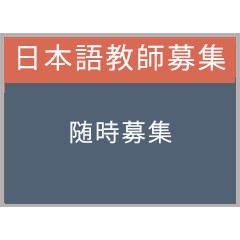Tokyo Private Japanese Language Learning
Japanese Tutor TOMO

Native Japanese Teacher TOMO
Native Language Japanese
Language Ability Fluent English
Born Tokyo – Japan
Teaching Area Tokyo, Shinjuku, Ikebukuro etc
Interests Music, Wring in Japanese, Travel, Gourmet, etc.
Past Career OL of the Japanese company and Jounalist
Japanese Courses Provided by TOMO
Tokyo Japanese Tutor TOMO
Hello, my name is Tomo, I’m a teacher at “Tokyo Japanese Tutor”.I’ve been working as a Japanese tutor for one and a half years both in Japan and Thailand, and I always help my foreign friends who study Japanese. Apart from teaching, I’m also a journalist.
I can help you improve your Japanese for any purpose ; school, work, speaking with friends, or if you have any special hobbies such as films or music.
My teaching style depends on what you want to focus on, such as grammar, conversation, passing a test etc. In my lessons I use both English and Japanese.
I like to keep my Japanese lessons casual and fun, but I can adapt the lesson style and content depending on how you like to learn.
Every Japanese learners may have different purposes and interests; to enjoy traveling in Japan or casual conversation, to prepare for JLPT, to learn honorific expressions and so on.
Please let me know your expectations first, I will do my best to meet them! I’m looking forward to seeing you.
みなさん、こんにちは。”Tokyo Japanese Tutor”のTomoです。私は日本とタイで日本語を1年半教えていました。私のレッスンは、生徒の目的(仕事、趣味、学校、試験など)に応じて授業を組むことができます。
日本語や英語を使用してのレッスンで、楽しく、リラックスしたスタイルでレッスンができればと考えています。
日本への旅行や日本語での会話をより楽しみたい方、日本語能力試験を目指す方、敬語を学びたい方、皆さんの学習目的や興味は様々だと思います。
せっかくのプライベートレッスンなので、ご希望に沿った楽しい授業で皆さんの日本語習得をサポートいたします!これを機会に、私と一緒に日本語を勉強してみませんか。
みなさんにお会いできるのを楽しみにしています‼︎
Private Japanese Lessons and Personalized Programs
At first, I hear student’s needs and forecast the future of a lesson.
《An example of a lesson》
the conversation power.
(1) Introduction
A student speaks about an affair of the previous week freely.
I add vocabulary and tell other expressions.
I sometimes speak, and a student also makes the chance to question. The question power of the student is raised.
(2) Listening
A student watch a part of an animation (cartoon or a documentary) and said repeated.
(3) Problem practice
After a textbook, I make supplementary exercises. A student can make the learning contents fixed.
Japanese Teaching Teaching Approach
When learning a language, I think it’s most important for a student to have the purpose learning and a target clearly.
I have a basic teaching style for lesson .
But I design a lesson according to the student’s needs. For example, a song and an examination question and imitation meeting (only group study) etc.
Japanese Teaching Qualifications and Experience
I’ve been working as a Japanese tutor for one and a half years both in Japan and Thailand, and I always help my foreign friends who study Japanese.
TOMO先生へ「~そうです」と「~ようです」の違いについて教えていただけないでしょうか?
TOMO先生’s Answer:
A「~そうです」
B「~ようです」
Aにはおおまかに2種類ある。
A-1(雨が降りそうです。)
A-2(雨が降るそうです)A-2は、他から伝え聞いた情報を表現しているだけで、話し手の判断は含まれていないのに対して、A-1は、話し手がその場の状況(情報)から判断して、未来を予測している。
Bにもおおまかに2種類ある。
B-1(雨が降るようです。)
B-2(外は雨のようです。)B-1は、A-2に似ているが、他からの情報を加えて判断している。つまり、A-1+A-2 それに対して、B-2は、他からの情報であり、何よりも現在の状況を推し量っている点でもAとは異なる。
さらに、B-2は、「雨」(名詞)+助詞(の)という構成になっているのに対して、A-1、A-2、B-1は、「降る・降り」(動詞)に接続している点でも異なる。
最後に、「ようです」には、B-3(彼女は、モデルのようです。)のように、「名詞+の+ようです」の形で、他のものに喩える意味をもつものもある。
TOMO先生へ「~してしまいました~」と「~しました~」の違いについて説明してくれませんか?
TOMO先生’s Answer:
A 「~してしまいました~」
B 「~しました~」
Aは、時間をかけて取り組んできたことを、今、やり遂げた(完了した)という意味合い、つまり、時間の幅と、直近の過去であるという時期を明確に含んでいる。それに対して、Bは、ある行為・行動をした経験が過去にあったことのみを示しており、Aのような時間の幅や、過去のいつ頃なのかという点までは表現していない。
A(例) 英語の宿題をしてしまいました。
B(例) 英語の宿題をしました。
Ask TOMO Teacher Japanese Culture Questions
私は「繊細な文化」だと考えています。それは言語に表れています。日本語を学ぼうとする方にとって、もっとも悩ましい助詞や助動詞はまさにその表れです。助詞や助動詞は、単独では成り立ちませんが、一語で文に複雑な意味を加える力があります。日本人は、最後までものを言わないと非難されますが、助詞・助動詞の役割を認識していれば、意味は伝えられていることが多く、より深いコミュニケーションをとることができます。
そういった繊細さは細かな違いを見抜く力にもなり、ものづくりや研究、暮らしにも活きています。壊れにくい家電製品、エコのための研究、身近なところでは料理。たとえば「出汁」に代表されるように、見かけや味だけでなく「風味」という匂いと触感の融合する部分にまでこだわるのです。
繊細さは脆さと似ていますが、竹のようにしなやかでしたたかな面を持つ文化であるのです。


Stay in Touch
RSS
Facebook
Twitter
Google +1